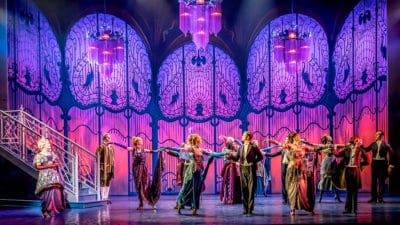Theatre

Feature
Alice Ellen Wright takes us into Les Misérables
As understudy to Eponine and Fantine, Wright talks Women In Theatre.
The West End production of Les Misérables first opened in the city in 1985, bringing the tale of Jean Valjean in 19th century France during the revolution to the London stage.
The musical has attracted millions of visitors during its 32 year history, as well as many more across the globe including on Broadway. The epic tale and haunting music continues to enthral fans in the world of Valjean, his pursuer Javert, as well as the turbulent lives of the troubled Fantine, Eponine and Cosette.
The female roles in Les Misérables demand a balance of vulnerability and grit, perceived by many as the top tier of musical theatre performance. Based on the novel by author and poet Victor Hugo, the tale is enhanced by Claude-Michel Schönberg’s notable compositions. These include the stunning I Dreamed A Dream, performed in the film adaptation by the Academy Award winning Anne Hathaway.
Watch the West End cast of Les Misérables perform I Dreamed A Dream at West End Live 2017:
As Valjean breaks parole and escapes from the confines of the law, his life tangles with that of the men and women he meets; a collection of individuals who show true strength in a particularly difficult moment in history.
The musical and its story reflect the human force of the revolution, and the heartbreak and heroics that underpinned such times.
As part of our celebration of Women In Theatre, marking 100 years since women’s suffrage in the UK, Alice Ellen Wright (understudy to Eponine and Fantine at London’s Queen’s Theatre) takes us inside the world of Les Misérables .
By Alice Ellen Wright
Hello, I’m Alice and currently appearing in the West End production of Les Misérables. This year marks 100 years of Women’s suffrage, and to celebrate this and International Women’s Day, I am also thrilled to celebrate the strong, iconic female roles in musical theatre that inspire me and the many powerful actresses there are in theatre.
Last year I made my West End debut as understudy to both the influential roles; Eponine and Fantine. It has always been a huge goal of mine since I knew I wanted to be on stage, to be a part of musical theatre history in Les Misérables, the world’s longest running musical at the Queen’s Theatre, London. And to sing the remarkable score by Boublil and Schönberg , climb the barricade and tell the stories by Victor Hugo based around the French Revolution.
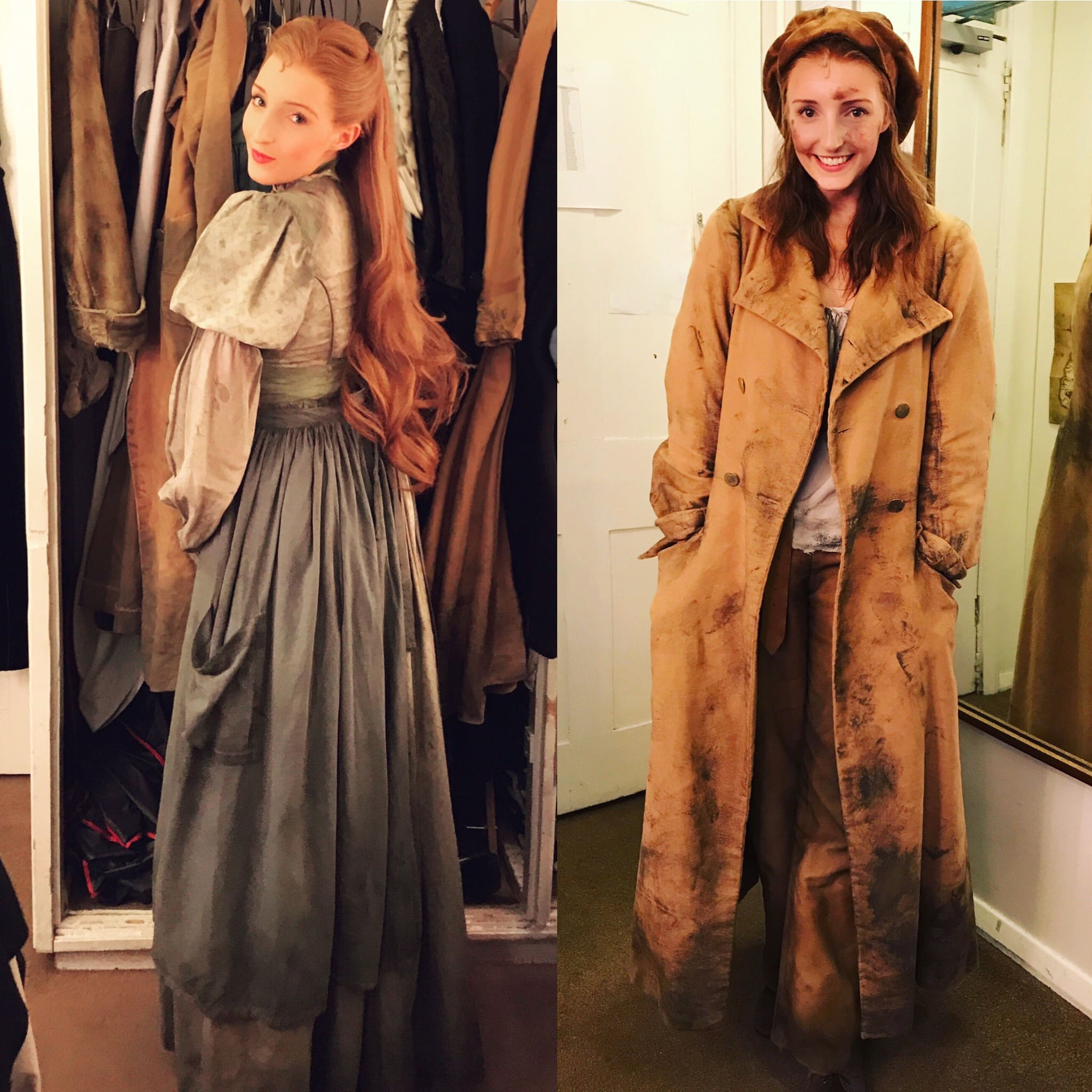
The chance to cover and play these leading female characters in Les Mis and to explore their incredible stories has been the most exciting time of my career so far. Fantine and Eponine are two very strong characters with completely different journeys, yet still so similar and relatable. Both characters particularly go through heartbreak which audiences and myself can relate to. This is what makes Les Misérables so special. With the powerful connection between the music and storytelling, we regularly see audience members in the front row wiping away tears. Often people come up to the stage door and tell us how they connected the performance with their own personal experiences they have been through.
“She has nothing in her life but never admits defeat.”
One thing I particularly admire about Fantine and Eponine is how brave they both are, and that they never give up. Even when society has rejected them, they’ve lost all hope and dignity, they do not let life defeat them. This in itself is inspiring.
Eponine is a street urchin who has lived a very dark life. Her parents are criminals and not bothered about her, but she doesn’t ask for sympathy . She is an independent girl fighting for a better life.
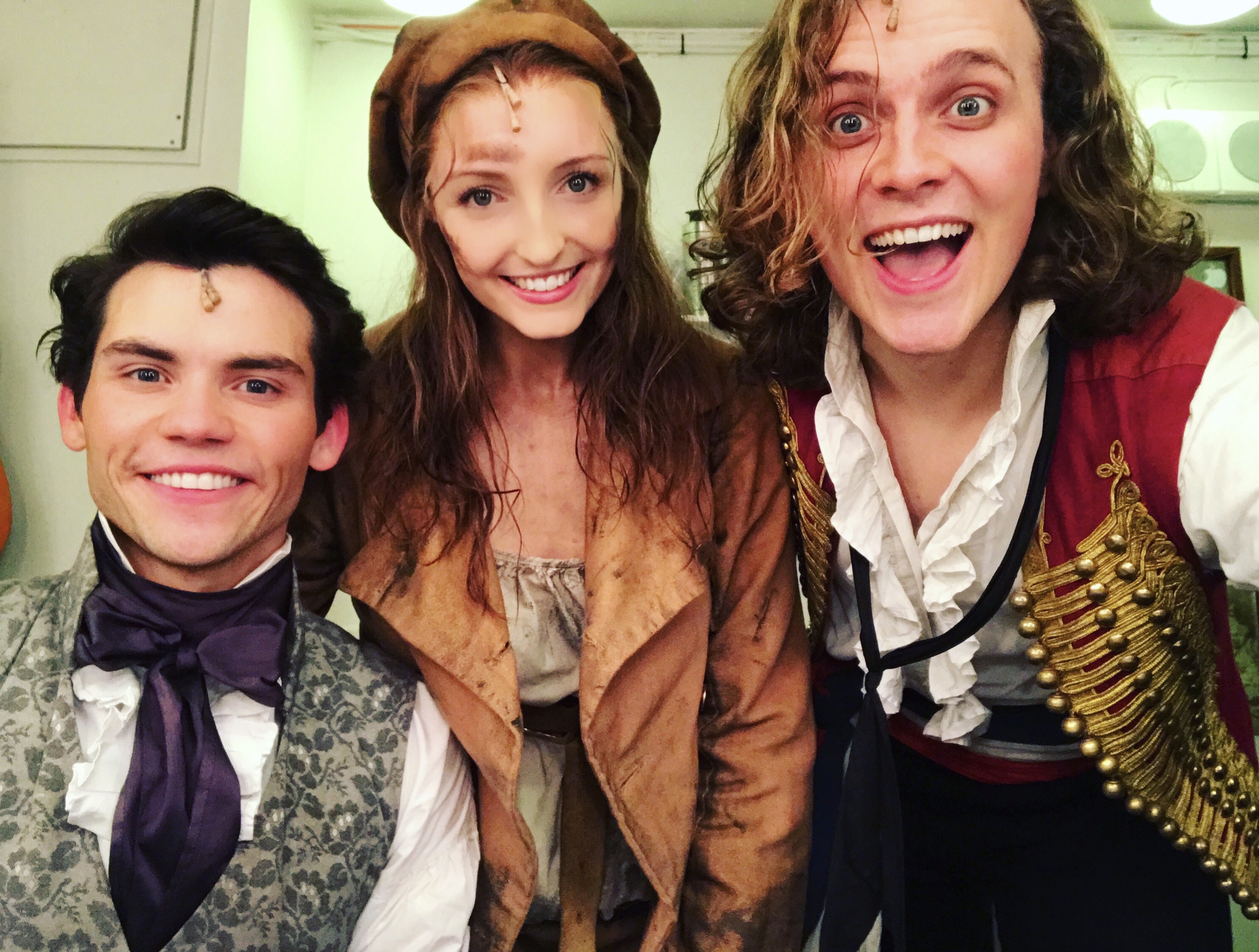
One of my favourite lines from Eponine to Marius is: “’Here, what d’you do with all these books? I could’ve been a student, too! Don’t judge a girl on how she looks. I know a lot of things, I do.”
She knows she is intelligent but hasn’t been fortunate enough to receive an education like the students have. Despite her unrequited love for Marius, the only light in her life, she remains strong. In the beginning of On My Own she describes how she uses her love for Marius as a way to keep her alive even though she knows it’s all in her head. “Without a home, without a friend, without a face to say hello to”; she has nothing in her life but never admits defeat.
“I can relate to them both a lot and try to bring truth to the performances.”
Fantine was left abandoned by her lover to fend for herself and look after their daughter. She is an innocent, young mother who keeps her private life to herself but through social injustice she loses her job. Fantine experiences betrayal from several people in her life but she persists to carry on and do what she can to survive for her daughter and only finally results to selling her hair and body, because she knows that is the only way to send money for her daughter. “What can I do, it pays a debt, ten francs may save my poor Cosette.” She is tested constantly throughout but each time life goes against her, we always see her pick herself up.
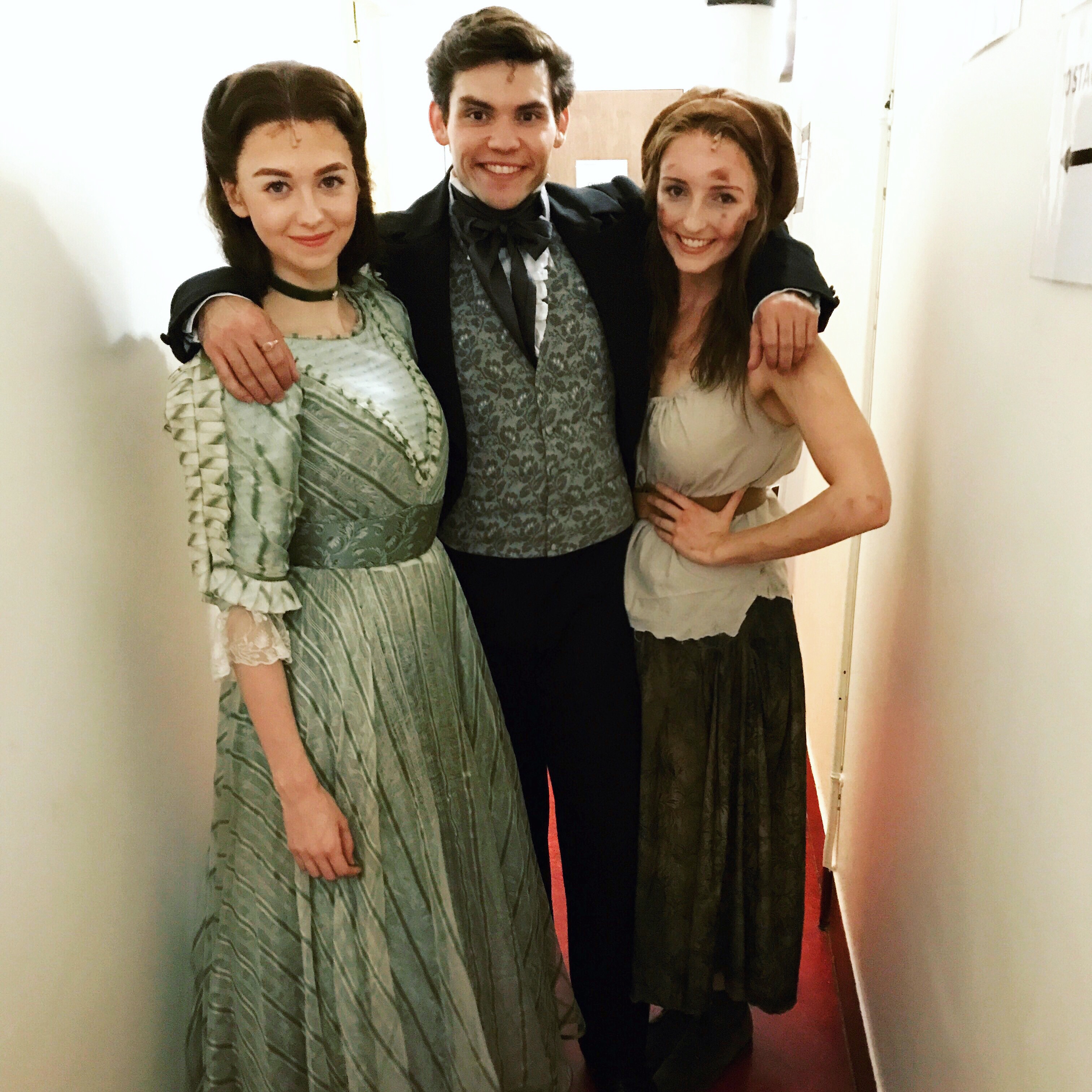
When playing these two different roles, I approach them both differently. I can relate to them both a lot and try to bring truth to the performances. As soon as I put on the costume, wig and make up I feel like the character and it allows me to channel their body language, how they stand and move. Fantine, with a better upbringing, has long beautiful hair, wears a dress and make up. Eponine is covered in dirt, wearing trousers, a coat and a hat to disguise herself as a boy and I get to wear a wig that is a bit more ragged.
Fantine’s story begins at the top of Act 1 and Eponine’s story begins towards the end of Act 1 into Act 2, therefore making their journey’s backstage and on stage separate. The two characters feel completely different, even with the way they sing. That’s what makes it so fun.
“Watching these award-winning actresses is a masterclass in acting.”
A huge reason I was inspired to take up acting is because of the many actresses in the West End and Broadway I have watched perform and the presence they have on stage.
There are so many to name but in particular Bernadette Peters and Angela Lansbury for their versatility in theatrical style, truth in performance and numerous starring roles in Sondheim musicals. Watching these award-winning actresses is a masterclass in acting.
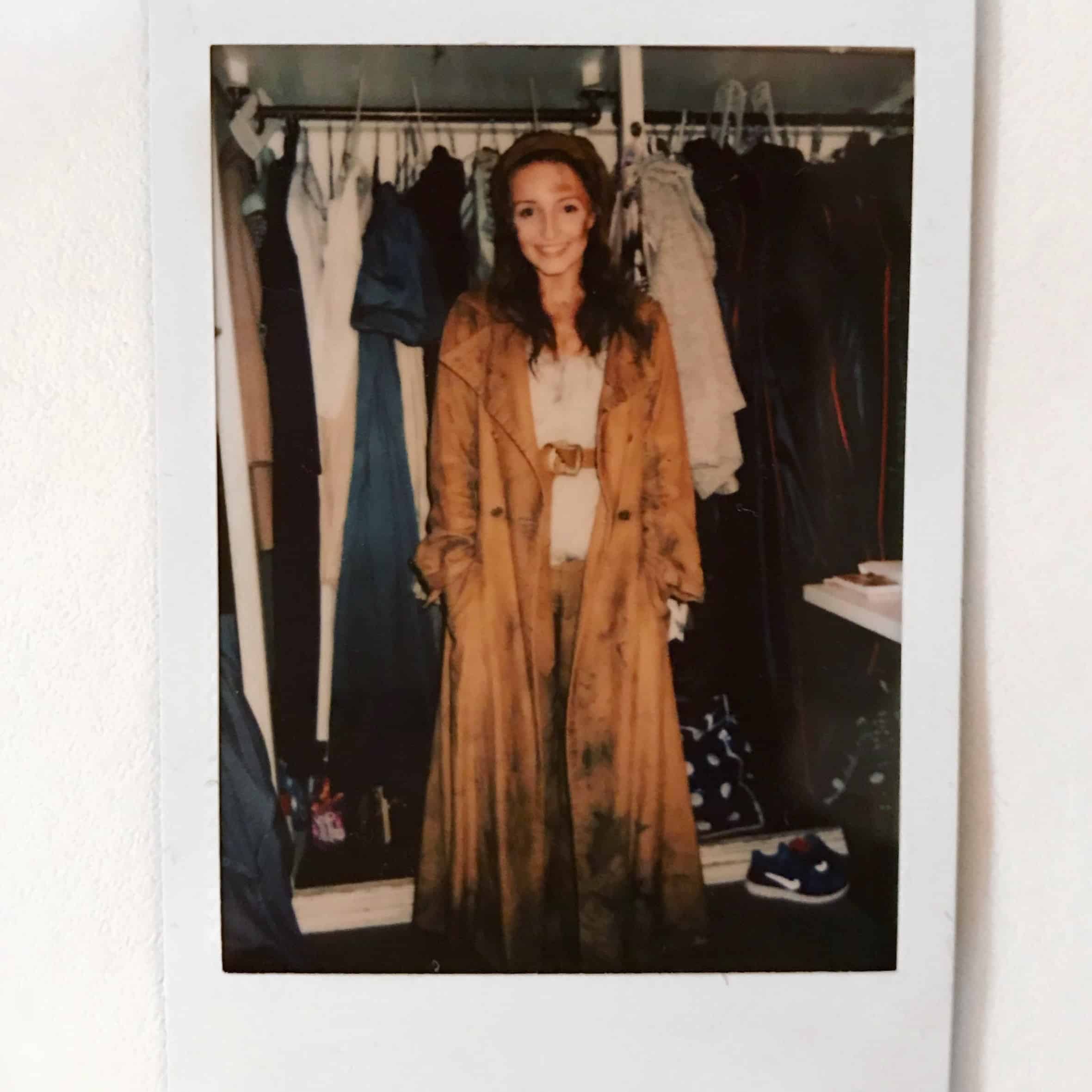
Other actresses that inspire me include Patti Lupone, the first actress to play Fantine in Les Misérables in 1985, winning the Olivier Award, and also played the original Eva Peron in Evita, on Broadway, for which she won a Tony Award. Kerry Ellis who also played Fantine in Les Misérables and was the first Elphaba I saw in Wicked, another empowering female role I would love to play one day.
Samantha Barks who played Eponine on stage and in the Les Mis film. I remember being sat in the audience watching these actresses being blown away by their emotional connection, knowing that one day I wanted to be up there too.
Les Misérables is running at London’s Queen’s Theatre. Tickets are available now through Ticketmaster.co.uk.
Follow Alice Ellen Wright on Twitter at @alicewright









